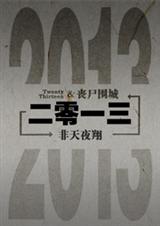一千零一夜-天方夜谭-1001 Nights(英文版)-第54部分
按键盘上方向键 ← 或 → 可快速上下翻页,按键盘上的 Enter 键可回到本书目录页,按键盘上方向键 ↑ 可回到本页顶部!
————未阅读完?加入书签已便下次继续阅读!
reproach and disgrace were sore upon him; this passed to his posterity after him; wherefore God sent prophets and apostles and gave them scriptures and they taught us the divine ordinances and expounded to us what was therein of admonitions and precepts and made clear to us the way of righteousness and what it behoved us to do and what to leave undone。 Now we are endowed with ableness (173) and he who acts within these limits (174) attains 'felicity' and prospers; whilst he who transgresses them and does other than that which these precepts enjoin; sins and is mined in both worlds。 This then is the road of good and evil。 Thou knowest that God can all things and created not lusts for us but of His pleasure and will; and He manded us to use them in the way of lawfulness; so they might be a good to us; but; when we use them in the way of sin; they are an evil to us。 So what of good we pass is from God the Most High and what of evil from ourselves (175) His creatures; not from the Creator; exalted be He for this with great exaltation!' (Q。) 'I understand that which thou hast expounded to me concerning God and His creatures; but tell me of one thing; concerning which my mind is perplexed with extreme wonderment; and that is that I marvel at the sons of Adam; how careless they are of the life to e and at their lack of taking thought thereto and their love of this world; albeit they know that they must needs leave it and depart from it; whilst they are yet young in years。' (A。) 'Yes; verily; and that which thou seest of its changefulness and perfidious dealing with its children is a sign that fortune will not endure to the fortunate; neither affliction to the afflicted; for none of its people is secure from its changefulness and even if one have power over it and be content therewith; yet needs must his estate change and removal (176) hasten unto him。 Wherefore man can put no trust therein nor profit by that which he enjoyeth of its painted gauds; and knowing this; we know that the sorriest of men in case are those who are deluded by this world and are unmindful of the world to e; for that this present ease they enjoy will not pensate the fear and misery and horrors that will befall them after their removal therefrom。 Thus are we certified that; if the creature knew that which will betide him with the ing of death and his severance from that which he presently enjoyeth of delight and clearance; he would cast away the world and that which is therein; for we are assured that the next life is better for us and more profitable。' 'O sage;' said the prince; 'thou hast with thy shining lamp dispelled the darkness that was upon my heart and hast directed me into the road I must travel in the ensuing of the truth and hast given me a lantern whereby I may see。'
Then rose one of the learned men who were present and said; 'When the season of Spring eth; needs must the hare seek the pasture as well as the elephant; and indeed I have heard from you both such questions and solutions as I never before heard; but now let me ask you of somewhat。 What is the best of the goods of the world?' 'Health of body;' replied the prince; 'lawful provision and a virtuous son。' (Q。) 'What is the greater and what the less?' (A。) 'The greater is that to which a lesser than itself submitteth and the less that which submitteth to a greater than itself。' (Q。) 'What are the four things in which all creatures concur?' (A。) 'Meat and drink; the delight of sleep; the lust of women and the agonies of death。' (Q。) 'What are the three things whose foulness none can do away?' (A。) 'Folly; meanness of nature and lying。' (Q。) 'What is the best kind of lie; though all kinds are foul?' (A。) 'That which averteth harm from its utterer and bringeth profit。' (Q。) 'What kind of truthfulness is foul; though all kinds are fair?' (A。) 'That of a man glorying in that which he hath (177) and boasting himself thereof。' (Q。) 'What is the foulest of foulnesses?' (A。) 'When a man boasteth himself of that which he hath not。' (178) (Q。) 'Who is the most foolish of men?' (A。) 'He who hath no thought but of what he shall put in his belly。'
Then said Shimas; 'O king; verily thou art our king; but we desire that thou assign the kingdom to thy son after thee; and we will be thy servants and subjects。' So the king exhorted the learned men and others who were present to remember that which they had heard and do according thereto and enjoined them to obey his son's mandment; for that he made him his heirapparent; so he should be the successor of the king his father; and he took an oath of all the people of his empire; doctors and braves and old men and boys; that they would not oppose him 'in the succession' nor transgress against his mandment。
When the prince was seventeen years old; the king sickened of a sore sickness and came nigh unto death; so; being certified that his last hour was at hand; he said to the people of his household; 'This is a mortal sickness that is upon me; wherefore do ye summon the grandees and notables of my empire; so not one of them may remain except he be present。' Accordingly; they made proclamation to those who were near and made known the summons to those who were afar off; and they all assembled and went in to the king。 Then said they to him; 'How is it with thee; O king; and how deemest thou for thyself of this thy sickness?' Quoth Jelyaad; 'Verily; this my sickness is mortal and the arrow 'of death' hath executed that which God the Most High decreed against me: this is the last of my days in this world and the first of my days in the world to e。' Then said he to his son; 'Draw near unto me。' So he drew near; weeping sore; that he came nigh to wet the bed; whilst the king's eyes brimmed over with tears and all who were present wept。 Quoth Jelyaad; 'Weep not; O my son; I am not the first whom this inevitable thing betideth; nay; it is mon to all that God hath created。 But fear thou God and do good; that shall forego thee to the place whither all creatures tend。 Obey not thy lusts; but occupy thyself with the praises of God in thy standing up and thy sitting down and in thy sleep and thy wake。 Make the truth the aim of thine eyes; this is the last of my speech with thee and peace be on thee。'
Then he bequeathed him the kingdom and the prince said; 'O my father; thou knowest that I have never ceased from obedience unto thee and mindfulness of thine injunctions; still carrying out thy mandment and seeking thine approve; for thou hast been to me the best of fathers。 How; then; after thy death; shall I depart from that whereof thou approvest? After having fairly ordered my bringing up; thou art now about to depart from me and I have no power to bring thee back to me; but; if I be mindful of thine injunctions; I shall be blessed therein and great good hap will betide me。' Quoth the king; and indeed he was in the last agony; 'Dear my son; cleave fast unto ten precepts which if thou observe; God shall profit thee herewith in this world and the next; and they are as follows。 When thou art angered; curb thy wrath; when thou art afflicted; be patient; when thou speakest; be truthful; when thou promisest; perform; when thou judgest; do justice; when thou hast power; be merciful; deal generously by thy governors and lieutenants; five those that transgress against thee; be lavish of good offices to thine enemy and withhold thy mischief from him。 Observe also other seven preceptor wherewith God shall profit thee among the people of thy realm; to wit; when thou dividest; be just; when thou punishest; oppress not; when thou makest an engagement; fulfil thine engagement; hearken to those that give thee loyal counsel; abstain from contention; enjoin thy subjects to the observance of the divine laws and of praiseworthy usages; do equal justice between the folk; so they may love thee; great and small; and the froward and corrupt of them may fear thee。'
Thn he addressed himself to the amirs and doctors; who were present when he appointed his son to be his successor; saying; 'Beware of transgressing the mandment of your king and neglecting to hearken to your chief; for in this lies ruin for your country and sundering for your union and hurt for your bodies and perdition for your goods;

![一千个深吻 [出书版完结]封面](http://www.9wshu.net/cover/noimg.jpg)



